What does 'Brexit means Brexit' mean?
- Published
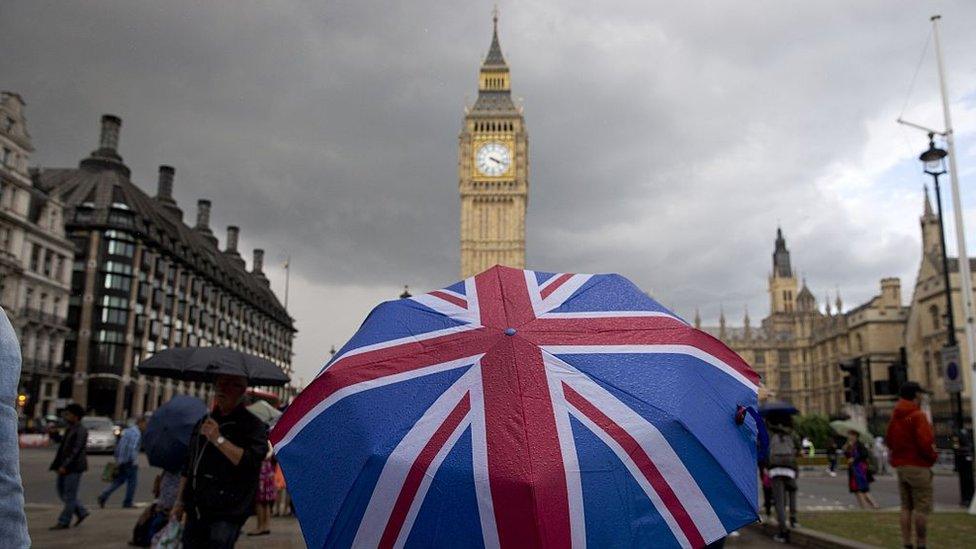
Is the new prime minister's slogan as firm and unambiguous as it first seems?
"Brexit means Brexit". "We are all Brexiters now."
Our new prime minister's statements, and those of her supporters, are perhaps the opposite of a Zen koan, external.
Those philosophical puzzles - like "the sound of one hand clapping" - are apparently meaningless, but long meditation on their internal contradiction is supposed to allow enlightenment to blossom.
Mrs May's slogans, on the other hand, seem firm and unambiguous, but after a little reflection unravel into a world of trouble ahead.
She rises from the ashes of the defeat of her side in the referendum, but how she copes with its implications will determine her success or failure in No 10.
"Brexit means Brexit," does mean of course, that she will take the UK out of the EU.
About the only thing she said about the whole central matter in her Birmingham speech launching her campaign, external was: "There will be no attempts to remain inside the EU, no attempts to rejoin it by the back door, and no second referendum.
"The country voted to leave the European Union, and as prime minister I will make sure that we leave the European Union."
While there are many outside Westminster who will be furious (disMayed, even) at that, few inside the Palace can conceive of anything else. MPs will at least now debate the matter, external, as a sort of consolation prize.
But the manner of withdrawal, and the subsequent relationship, is up for grabs.
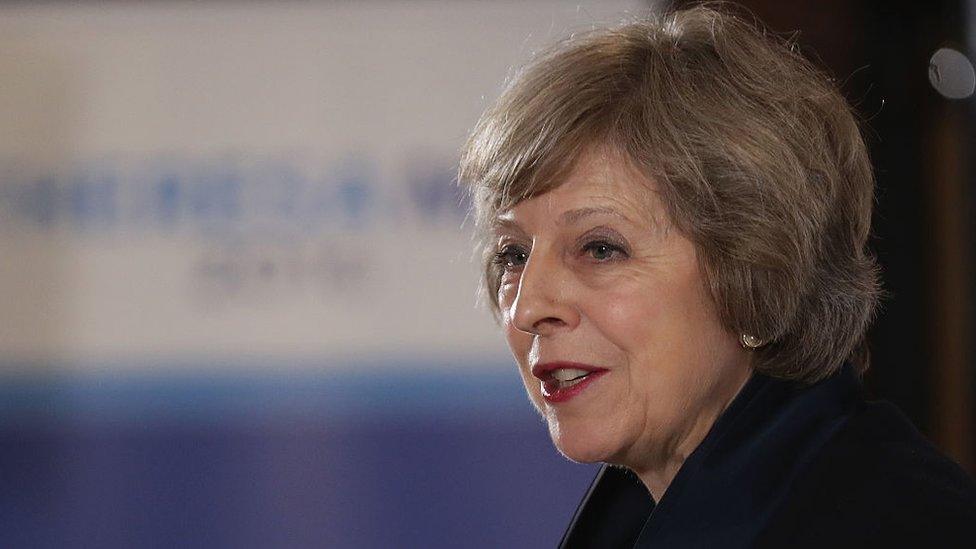
Mrs May has insisted the will of the British electorate to leave the EU must be respected
Again, all Mrs May has said is that she will "negotiate the best terms for Britain's departure from the European Union - and forge a new role for ourselves in the world".
This is pretty much empty rhetoric. She would hardly negotiate the worse deal possible.
It tells us nothing of her stance - as I wrote last week the new battle lines are between hard and soft Brexit.
At its core, this is an argument over the balance between the value of the single market and the perceived need to reduce EU immigration.
The first decision for the new prime minister will be about timing. Should the formal mechanism for leaving the EU, Article 50, external, be triggered in the next few days, as her prime ministerial rival Andrea Leadsom wanted, or a little bit farther down the road?
More important is what is behind this. Formally declaring could mean a desire for an orderly exit, by detailed negotiation, or simply a desire to get it all over with.
Real hardliners argue that the most important step is repealing the European Communities Act 1972, external. The former cabinet minister and veteran Eurosceptic John Redwood, external set this out very clearly.
"Article 50 is not a great basis for the negotiation, as it implies all is in the pot for debate and all could take a long time. I would rather trigger it to complete the process after all has been sorted out.
"If the government refuses to get on with legislating, then a poor second would be immediate Article 50 followed by very tough negotiations, and a willingness to simply pull out of talks and legislate if they are unrealistic."
Mrs May's every move will be watched by a number of very hawkish hawks who have decades of experience of hand-to-hand fighting in the Tories' European civil war.
One clue to her intentions will be how quickly Mrs May sets out her plan. A firm bottom line will satisfy the hawks. More waffle will suggest she genuinely wants to explore how much wiggle room the other 27 nations will give her.
It is critical to hear Mrs May's thoughts on what she want to do about European immigration. This is the stumbling block for those who want pretty much the same access as we have now to the European single market. It is highly unlikely we will get it, if the government wants to curb free movement of people.
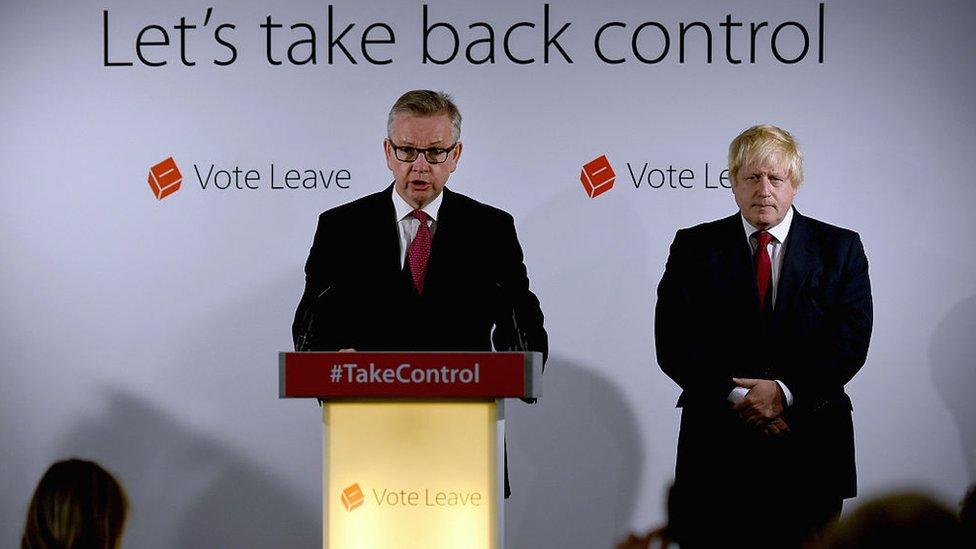
The issue of migration dominated the EU Referendum campaign
We know what those Brexiters who backed the Vote Leave campaign desire.
In what amounted to a mini-manifesto from Boris Johnson and Michael Gove during the campaign, external, they proposed an "asylum and immigration control bill" by the end of the Parliament, and that "a process should be established to consider the details of this new system" right away.
They promised that: "This would end the automatic right of all EU citizens to enter the UK by the next election. We will be able to carry out proper security checks on those entering and refuse entry to known criminals.
"EU citizens will be subject to UK law rather than EU immigration legislation. The Bill would end the discrimination against non-EU citizens and create a genuine points-based immigration system in which the possession of suitable skills is a key element."
There is a bit of a problem here for PM May, aka the former home secretary. It can be argued that the UK already has a "points-based immigration system", external for people who come from outside the European Union. And it has been a spectacular failure.
The UK hasn't been able to control immigration, even when it had the legal right to do so, and Mrs May would have to explain how any new system would work any better, simply because it was extended to EU citizens as well.
The Vote Leave mini-manifesto misses out a couple of words its supporters usually added in interviews: "Australian-style".
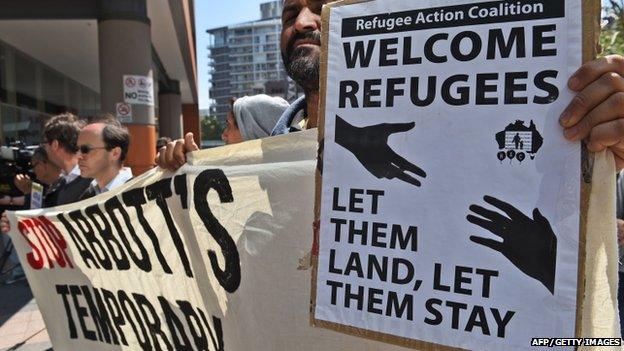
Australia's immigration policy is a hot-button issue in every election
As I understand, it the Australian system, external relies on visas - otherwise you don't really know who is coming in to work, or just on holiday, whether they should be gone after a month or have the right to stay for a couple of years and so forth. Visas for the French would be a pretty big step.
Then the UK's problem is not just attracting skilled labour, to do all the jobs Brits haven't the know-how to do, from nursing to engineering.
We seem to be short of unskilled labour too. It may be that European immigration has deprived British people of those jobs. We will see.
The free-market right of the Conservative Party might point our that food-processing plants and fruit fields are being robbed of a plentiful supply of cheap labour.
Now it is possible all the unskilled and unemployed Leave voters of Sunderland and Boston will borrow Norman Tebbit's bike, and cycle merrily down to the blackberry fields, grateful for the opportunity for a bit of back-breaking labour.
Unwanted legacy
Or maybe the points-style system could allow a certain number of unskilled Poles into the country to do the jobs they've been doing, but this would rather run counter to the apparent instruction of the electorate, who are not required to be economically literate.
As I write, the whole cabinet has not been announced, but so far it seems a balanced team, with Boris Johnson's first ministerial job one of the biggest available. It is no accident that of the first six people to be announced, three campaigned to remain, three to leave. The new foreign secretary, the minister for Brexit and the new job of international trade are all prominent leave campaigners.
There will be a lot about the rise of women. We like the big picture here, and we shouldn't ignore the biggest and oldest divide in human society. But agenda matters more than gender in this debate.
But I predict there will be an unwanted legacy. There are simply too many teeth for the mouth. Too many people who think they are entitled to a big job. There is a whole swathe of "leavers" currently outside the cabinet who think they should be in it.
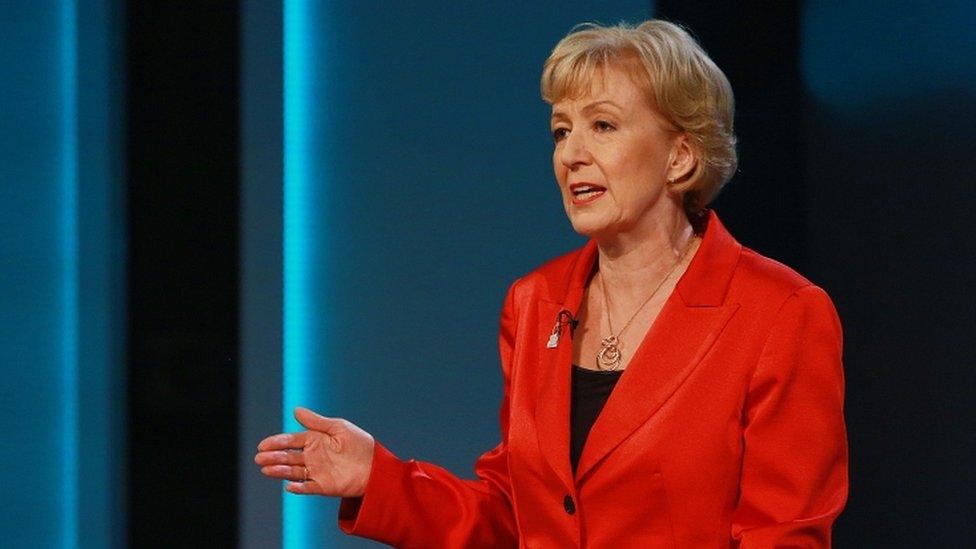
Will there be a place for Andrea Leadsom in Theresa May's cabinet?
There are current members who have done nothing wrong except be loyal to the prime minister, just like Mrs May. There are friends she wishes to promote. There are those who backed her at once, who deserve a reward. There are those on the other teams, who need to be soothed.
There may be those who are shunted to one side by those of less ability because of the need to balance Leavers and Remainers.
Such positive discrimination can lead to bitterness. It all adds up to quite a few people sitting on the green benches behind Mrs May with an axe to grind.
Some of them have been rather good, for years, at polishing, and honing that axe, and when they last swung it they decapitated a prime minister. They will bide their time, nursing grudges.
A Zen master once said, external a koan is like "swallowing a red-hot iron ball. You try to vomit it out, but you can't."
Brexit could be a bit like that for the new prime minister.
- Published14 July 2016
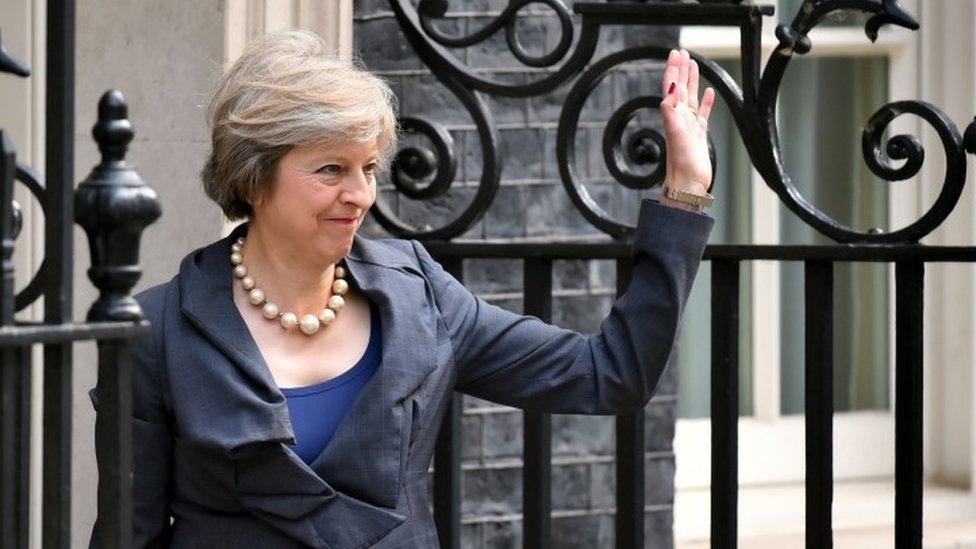
- Published25 July 2016

- Published12 July 2016
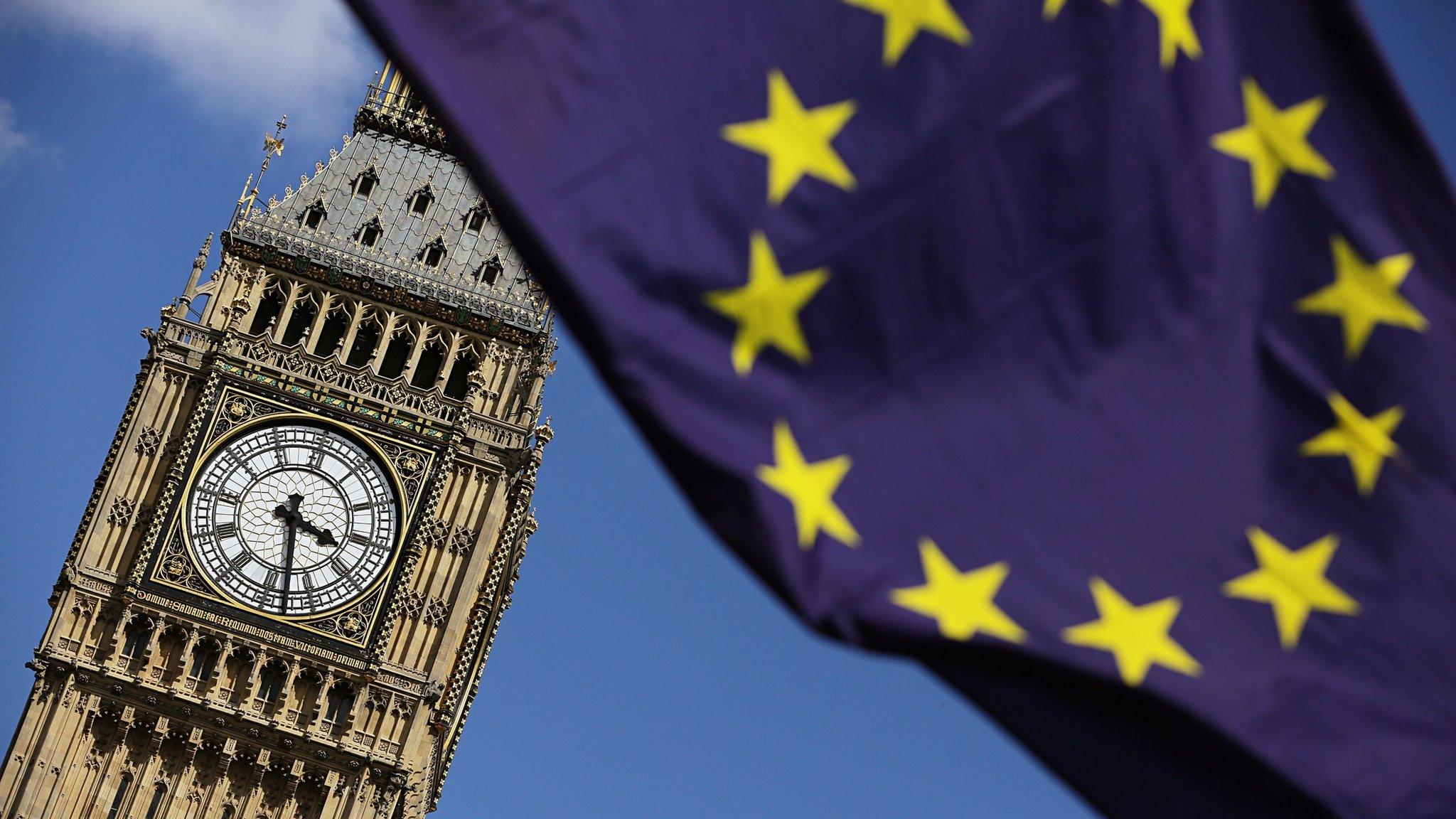
- Published7 July 2016